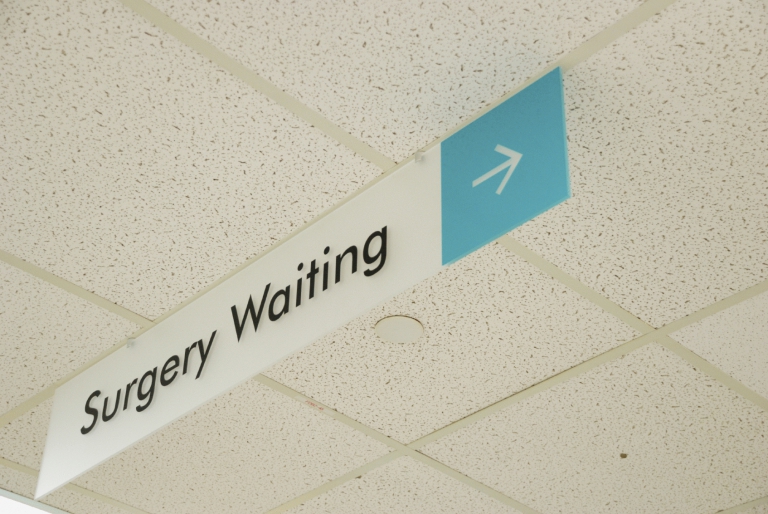The reductions in health care coverage for refugee claimants under then-Immigration Minister Jason Kenney in 2012 as part of a larger package of refugee policy reforms have often been cited as evidence of the callous parsimony of the Harper Conservative government. Apparently they’re even more miserly than imagined. In a judgment handed down last month, Federal Court Justice Anne Mactavish ruled that the reductions in coverage are actually “cruel and unusual”, and a violation of refugees’ rights under sections 12 and 15 of the Canadian Charter of Rights and Freedoms. Their impact on the children of refugee claimants is particularly heinous, Justice Mactavish wrote, because they “jeopardize the health, and indeed the very lives, of these innocent and vulnerable children in a manner that shocks the conscience and outrages Canadian standards of decency.”
The finding was no doubt welcomed by opponents of the reforms, who have long and loudly argued they are harmful, costly, and cruel. Unmoved, current Immigration Minister Chris Alexander promptly announced Ottawa is appealing the decision, on behalf of Canadian taxpayers. First stop is the Federal Court of Appeal, and possibly then to the Supreme Court of Canada, setting the stage for yet another showdown between the Harper government and the Court over a Charter issue.
The 2012 refugee healthcare reforms were part of a larger, long-term effort by the Harper government to overhaul immigration and refugee policies, ostensibly to better serve Canada’s economic interests. At the time, Minister Kenney alleged that some “bogus” refugee claimants were exploiting a costly combination of a lengthy claim determination process (then estimated to average about three years), weak removals enforcement, and a generous social safety net. The fact that Canada was then receiving more refugee claims from relatively well-off and stable European countries than from sometimes dangerously dysfunctional nations in Africa or Asia lent credence to his arguments.
The reforms included expediting adjudication and determination, making removals more efficient, changes to eligibility requirements for work permits; and restrictions on appeals to remain in Canada after refugee claims are denied. A key element was the creation of a list of countries known as Designated Countries of Origin or DCOs. Countries are added to the DCO list if they have high rates of refugee claim rejection, withdrawal, or abandonment, and are subjectively determined to have an independent judicial system, recognition of basic rights and freedoms, and civil society organizations.
What really upset refugee advocates and, eventually, Justice Mactavish, was two reforms to health care coverage for refugee claimants under the Interim Federal Health Program (IFHP). Those from non-DCOs continued to receive basic health coverage equivalent to that provided under Medicare but could no longer receive extended benefits such as outpatient pharmaceuticals. Claimants from a DCO lost basic health coverage prior to determination, and were granted only “public safety coverage,” which pays the cost of care for diseases that pose a risk to public health and safety.
The reform package clearly reduced delays and increased efficiency in the determination process. Ottawa is now processing claims in less than four months for the majority of claimants, with more unsuccessful claimants being removed from Canada more quickly. The disincentives have also clearly had an impact: Year-over-year refugee claims have fallen by more than 70 percent. And according to the government, the cost savings to taxpayers has been $600 million.
It’s impossible to know whether the cuts to health coverage were more, or less, responsible for discouraging illegitimate claimants than other measures in the reform package. But in the courts, and the court of public opinion, the health cuts have been the main issue. Which raises the question: Do the reforms place Canada out of step with other developed nations that face similar concerns about “bogus” refugees taking advantage of taxpayer-funded support programs?
For failed refugee claimants, there is either no health coverage or limited emergency health coverage in Australia, Denmark, England, France, Germany, Iceland, Japan, New Zealand, Norway, and Switzerland. Exceptions include the Netherlands (where coverage may be provided if doctors deem the need “medically necessary” and the failed applicant is proven unable to pay), Sweden (where children of failed applicants continue to receive full coverage while adults receive no coverage), and Italy, where nearly full coverage is available (except for visits to general practitioners, which can limit access to specialist care) for a small user fee.
After a successful refugee or asylum claim, Canada’s program is equally generous when compared to the health plans of these other developed nations. In all these countries, a successful refugee claimant would have access to the universal health insurance scheme similar to what would be available to a typical resident of the country. In Canada successful refugee claimants who receive financial assistance receive the same health insurance services that typical residents do under Medicare as well as extended health benefits including immunizations and medications.
The greatest disparity in coverage among nations involves those who have claimed asylum or refugee status but who have yet to be accepted or rejected. Many countries maintain full insurance coverage (including coverage for drugs) for those in limbo, including Australia, England, France, Italy, Japan, Netherlands, New Zealand, and Norway. Full coverage is only offered to children in Denmark and Sweden, while adults receive coverage only for care that cannot be deferred. Germany provides adults only emergency care for 48 months during the application period though children have extended coverage. Switzerland provides no public coverage and requires claimants to purchase health insurance in the regulated market after three months.
What’s unique about the Canadian system is the differentiation between DCO and non-DCO countries. Canada falls among the more limited countries for non-DCO claimants by covering physician and hospital services but not the costs of outpatient drugs if there is no risk to public health or public safety. This is in line with what is provided by tax-funded universal schemes to typical Canadians. But for those from a DCO, Canada’s coverage is among the most restrictive.
Complaints about health care coverage for refugee claimants fall along three lines: a lack of general health care coverage for those who come from a DCO who are waiting for a determination; outpatient prescriptions and other extended benefits for those from a non-DCO who are waiting for a determination; and a lack of general health care coverage for those who have no legal right to remain in the country.
Yet any fair comparison of policies around the developed world finds that Ottawa’s reformed approach is not unusual, with the notable exception of differences in coverage based on country-of-origin. And the impacts of the reforms are ameliorated by other measures that significantly reduce the period of time refugee claimants are waiting for a final decision. Overall, the policy changes hardly seem to merit the label “cruel and unusual.” Indeed, coverage for those with no legal standing to remain in Canada is very much in line with coverage provided to failed refugee claimants in other developed nations.
Of course, with any policy there are important questions about fairness, some of which were raised in the court challenge to the reforms. For example, failed refugee claimants may still hold valid work permits pending expulsion, meaning they could pay taxes to support Canadian healthcare but have no access to it. The reforms also neglect to address health coverage for failed refugee claimants who are stateless or cannot be returned due to other government policies.
While opponents of the reforms may celebrate the recent court finding, a look beyond Canada’s borders suggests it’s time for them – and the courts – to drop the extremist rhetoric against the changes. Health care coverage for refugee claimants in Canada is clearly imperfect and inconsistent, but the only thing cruel and unusual about it is the suggestion that it “shocks the conscience and outrages Canadian standards of decency.”
~
Research assistance for this article was provided by Taylor Jackson and Mike Craig.





